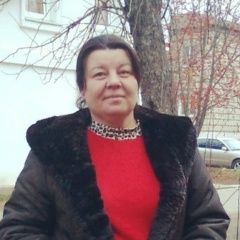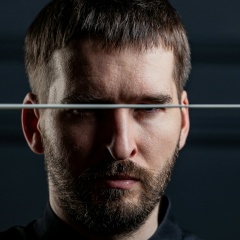gutta_honey: Счастливый детства уголок
Детская психологическая травма часто проходит по жизни человека, как красная шелковая нить. Перепутавшись и закрутившись вокруг личной истории людей, превращает ее в неровный, местами вспучившийся между витками нитки жгут. Куда не потянешь, нитка начинает больно впиваться в тело через воспоминания и сохранившиеся детские привычки.
Взрослые с историей насилия в детстве часто не могут сдвинуться в сторону, повторяя отношения своей дисфункциональной семьи. Для них любовь это то, что давали им родители, что бы они не давали ему. Ребенок не может послать плохих родителей подальше. Ему нужно выживать и поэтому он готов разбиться в лепешку, чтобы родители-абьюзеры реагировали на него. Им нужно было доказать, что он стоит внимания, что он может стать хорошим и тогда они его полюбят.
Эти отношения часто переходят во взрослую жизнь. Взрослые, и мужчины, и женщины, чувствуют себя нужными там, где партнер ими пренебрегает и плюет на них. Им кажется, что еще вот-вот, еще один шаг, и их полюбят. Нет, их уже любят, даже когда пинают в лицо. А если их любят, то они не в праве покинуть мучителя. Просто нужно сильнее стараться, больше работать, лучше варить борщи, покупать больше шуб-машин-золота. А то, что в ответ нет ничего хорошего, никакой положительной обратной связи, это вполне объяснимо. Не заслужили просто они другого. Надо принимать наказания и отвержение. Это нормально. Это и есть любовь.
У них часто хронически не складываются отношения с обычными людьми. Если к ним относятся с уважением и любовью, то жертвы насилия просто игнорируют таких людей. Они их не видят, потому что в их банке памяти нет такого файла «тебя любят потому что ты просто есть». Даже если отношения как-то сложились, такой взрослый привычно начинает создавать из них атмосферу родного дома. Нужно, чтобы на тебя злились, тебя ненавидели, на тебя орали. Если тебя прощают и все равно любят – непорядок. Надо все превратить в неразгребаемый бардак, когда ты одинокий и всеми брошенный и тебя совсем не за что любить и уважать.
Сердце рвется на куски от стыда, одиночества, безысходности, бессилия и ненависти к себе. Добро пожаловать домой, детка!
Вообще, ужасно, сколько в себе люди иногда носят боли и причиняют ее себе, потому что боль для них это желаемое состояние. Это их детство, «счастливый уголок».
Детская психологическая травма часто проходит по жизни человека, как красная шелковая нить. Перепутавшись и закрутившись вокруг личной истории людей, превращает ее в неровный, местами вспучившийся между витками нитки жгут. Куда не потянешь, нитка начинает больно впиваться в тело через воспоминания и сохранившиеся детские привычки.
Взрослые с историей насилия в детстве часто не могут сдвинуться в сторону, повторяя отношения своей дисфункциональной семьи. Для них любовь это то, что давали им родители, что бы они не давали ему. Ребенок не может послать плохих родителей подальше. Ему нужно выживать и поэтому он готов разбиться в лепешку, чтобы родители-абьюзеры реагировали на него. Им нужно было доказать, что он стоит внимания, что он может стать хорошим и тогда они его полюбят.
Эти отношения часто переходят во взрослую жизнь. Взрослые, и мужчины, и женщины, чувствуют себя нужными там, где партнер ими пренебрегает и плюет на них. Им кажется, что еще вот-вот, еще один шаг, и их полюбят. Нет, их уже любят, даже когда пинают в лицо. А если их любят, то они не в праве покинуть мучителя. Просто нужно сильнее стараться, больше работать, лучше варить борщи, покупать больше шуб-машин-золота. А то, что в ответ нет ничего хорошего, никакой положительной обратной связи, это вполне объяснимо. Не заслужили просто они другого. Надо принимать наказания и отвержение. Это нормально. Это и есть любовь.
У них часто хронически не складываются отношения с обычными людьми. Если к ним относятся с уважением и любовью, то жертвы насилия просто игнорируют таких людей. Они их не видят, потому что в их банке памяти нет такого файла «тебя любят потому что ты просто есть». Даже если отношения как-то сложились, такой взрослый привычно начинает создавать из них атмосферу родного дома. Нужно, чтобы на тебя злились, тебя ненавидели, на тебя орали. Если тебя прощают и все равно любят – непорядок. Надо все превратить в неразгребаемый бардак, когда ты одинокий и всеми брошенный и тебя совсем не за что любить и уважать.
Сердце рвется на куски от стыда, одиночества, безысходности, бессилия и ненависти к себе. Добро пожаловать домой, детка!
Вообще, ужасно, сколько в себе люди иногда носят боли и причиняют ее себе, потому что боль для них это желаемое состояние. Это их детство, «счастливый уголок».
gutta_honey: Happy childhood corner
Childhood trauma often runs through a person's life like a red silk thread. Confused and twisted around the personal history of people, it turns it into an uneven bundle, sometimes swollen between the threads of the thread. Wherever you pull, the thread begins to painfully dig into the body through memories and preserved childhood habits.
Adults with a history of childhood abuse are often unable to get away with repeating the relationships of their dysfunctional family. For them, love is what their parents gave them, whatever they give him. A child cannot send bad parents away. He needs to survive and therefore he is ready to break into a cake so that abusing parents react to him. They needed to prove that he was worth attention, that he could become good and then they would love him.
This relationship often spills over into adulthood. Adults, both men and women, feel needed where the partner neglects them and spits on them. It seems to them that just about, one more step, and they will be loved. No, they are already loved, even when kicked in the face. And if they are loved, then they have no right to leave the tormentor. You just need to try harder, work harder, cook borscht better, buy more gold-fur coats. And the fact that there is nothing good in response, no positive feedback, is understandable. They just did not deserve something else. We must accept punishment and rejection. This is normal. This is love.
They often chronically do not develop relationships with ordinary people. If they are treated with respect and love, then the victims of violence simply ignore such people. They do not see them, because in their memory bank there is no such file “they love you because you just are”. Even if the relationship has somehow developed, such an adult habitually begins to create an atmosphere of a home from them. You need to get angry at you, hate you, yell at you. If you are forgiven and loved anyway, it's a mess. It is necessary to turn everything into an unshakable mess, when you are lonely and abandoned by everyone and you have nothing to love and respect for.
Heart breaks to pieces from shame, loneliness, hopelessness, powerlessness and self-loathing. Welcome home baby!
In general, it's awful how many people sometimes carry pain in themselves and inflict it on themselves, because pain for them is a desired state. This is their childhood, "happy corner".
Childhood trauma often runs through a person's life like a red silk thread. Confused and twisted around the personal history of people, it turns it into an uneven bundle, sometimes swollen between the threads of the thread. Wherever you pull, the thread begins to painfully dig into the body through memories and preserved childhood habits.
Adults with a history of childhood abuse are often unable to get away with repeating the relationships of their dysfunctional family. For them, love is what their parents gave them, whatever they give him. A child cannot send bad parents away. He needs to survive and therefore he is ready to break into a cake so that abusing parents react to him. They needed to prove that he was worth attention, that he could become good and then they would love him.
This relationship often spills over into adulthood. Adults, both men and women, feel needed where the partner neglects them and spits on them. It seems to them that just about, one more step, and they will be loved. No, they are already loved, even when kicked in the face. And if they are loved, then they have no right to leave the tormentor. You just need to try harder, work harder, cook borscht better, buy more gold-fur coats. And the fact that there is nothing good in response, no positive feedback, is understandable. They just did not deserve something else. We must accept punishment and rejection. This is normal. This is love.
They often chronically do not develop relationships with ordinary people. If they are treated with respect and love, then the victims of violence simply ignore such people. They do not see them, because in their memory bank there is no such file “they love you because you just are”. Even if the relationship has somehow developed, such an adult habitually begins to create an atmosphere of a home from them. You need to get angry at you, hate you, yell at you. If you are forgiven and loved anyway, it's a mess. It is necessary to turn everything into an unshakable mess, when you are lonely and abandoned by everyone and you have nothing to love and respect for.
Heart breaks to pieces from shame, loneliness, hopelessness, powerlessness and self-loathing. Welcome home baby!
In general, it's awful how many people sometimes carry pain in themselves and inflict it on themselves, because pain for them is a desired state. This is their childhood, "happy corner".
У записи 24 лайков,
9 репостов.
9 репостов.
Эту запись оставил(а) на своей стене Lazy Cat










































